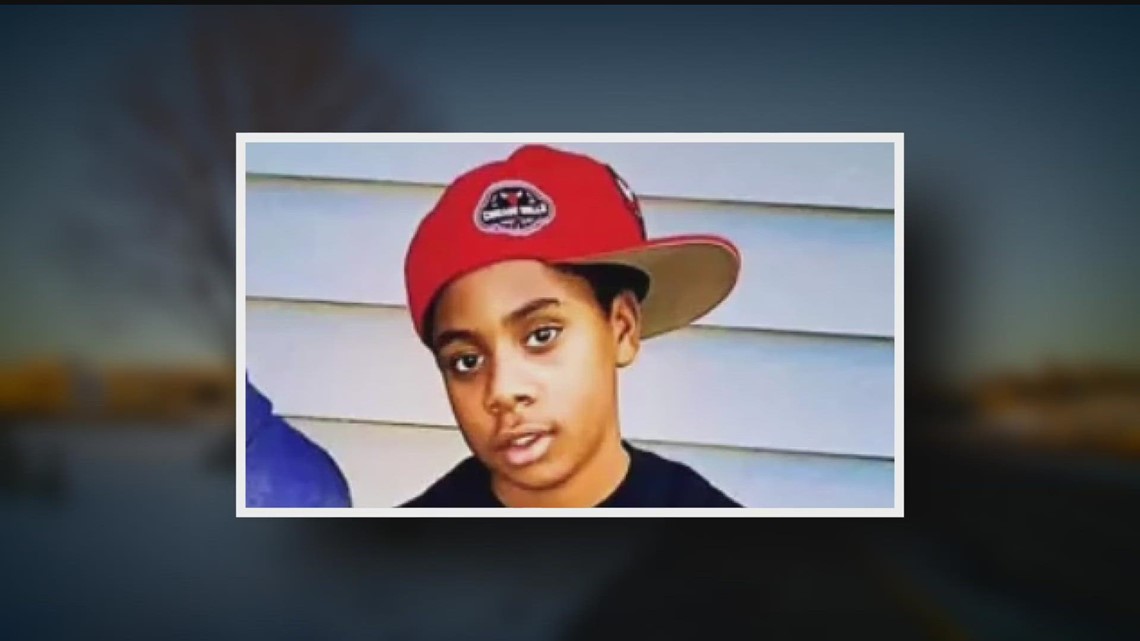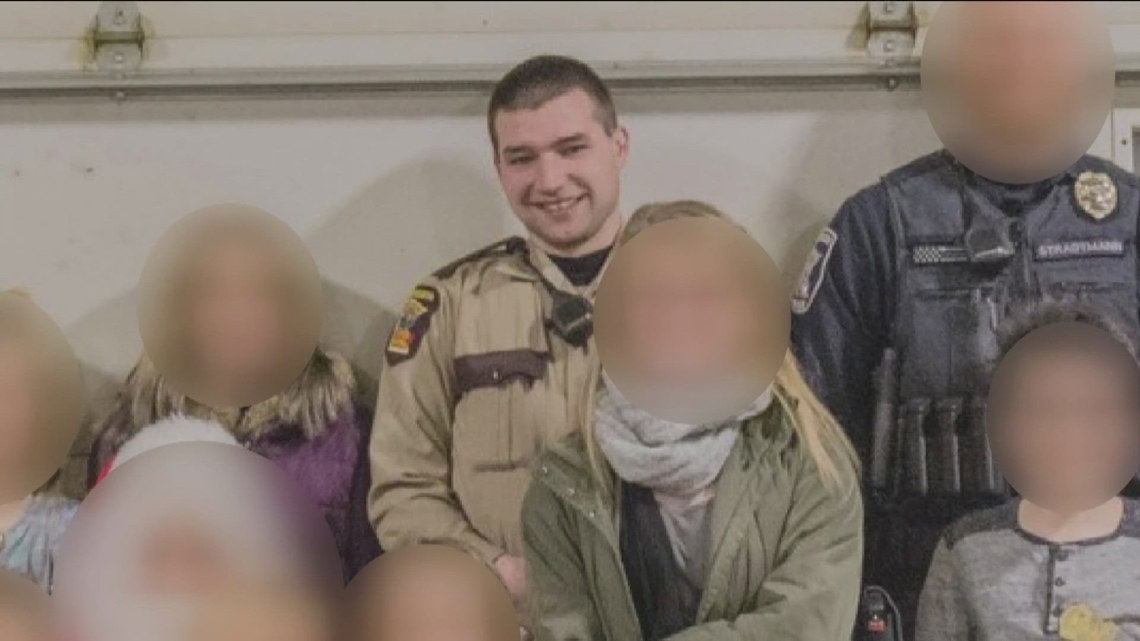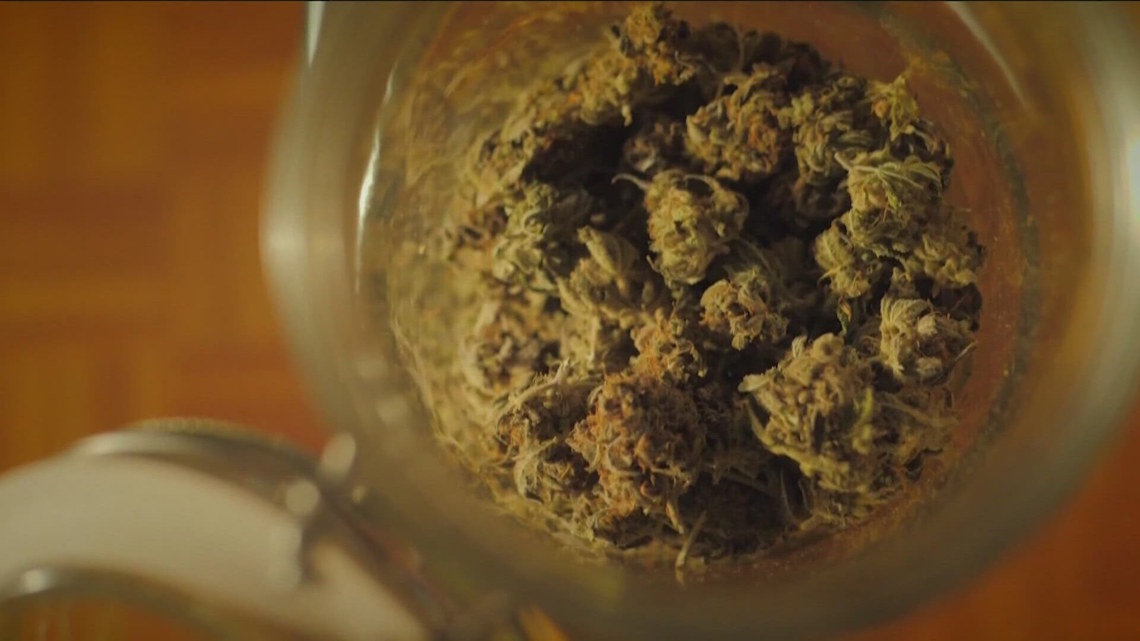Kare11
Suspect in fatal Harding stabbing pleads guilty


The former student, who was 16 years old at the time of the altercation, pleaded guilty to a 2nd-degree murder charge and 1st-degree manslaughter charge.
ST PAUL, Minn. — A 17-year-old former student at Harding High School has pleaded guilty to his role in the killing of a boy at the school in February.
The former student, who was 16 years old at the time of the altercation, pleaded guilty to a 2nd-degree murder charge and 1st-degree manslaughter charge for the killing of 15-year-old Devin Scott.
The juvenile court adjudicated the teen guilty and imposed a 103-month, more than 8.5 years, sentence that will be stayed until he turns 21.
After his next court appearance on Nov. 29, the teen will be ordered to the Red Wing Correctional Facility to complete their program.
The Red Wing facility will determine the length (and type) of his placement, but youth tend to complete the program in 9 to 12 months, said a spokesperson for the Ramsey County Attorney’s Office.
The 103-month sentence will remain stayed unless he fails to comply with the conditions of his probation.
According to the charging document, St. Paul police squads were dispatched to Harding just after 11:45 a.m. on Feb. 10 on reports of a student assault. When officers arrived they encountered lifesaving measures being performed on 15-year-old Devin Scott, who was in the midst of his first day attending school at Harding.
Scott was rushed to Regions Hospital, where he was pronounced dead.
Investigators spoke with Harding assistant principal Jayson Spence, who told them he was monitoring the halls between classes when he came upon two students fighting with another teen. The petition says Spence called for assistance, and once another staff member arrived the two intervened and pulled two students out of the fray. At that moment, Spence told investigators the third student got up off the ground with a knife and swung it, stabbing Scott in the right side of his chest. He says the defendant then lunged at Scott again, stabbing him in the stomach.
Another Harding staff member told police of witnessing the fight and seeing the defendant stab Devin Scott. He said he told Scott to go to the nurse’s office, but that the victim said he was dizzy and then collapsed.
The petition says the entire incident was also captured on surveillance cameras, showing Scott and the defendant starting to fight before the third student, referred to as MB, jumped in and began helping Scott. After the two staffers pulled Scott and MB away from the brawl, prosecutors say the defendant was captured on video advancing and using the knife to stab Scott.
Staff security then arrived on the scene, detained the defendant and placed him in handcuffs. The defendant was reportedly agitated, telling security the two other students “jumped me. ”
Prosecutors say the defendant was taken to the office and searched, and security staff recovered a four-inch knife with blood on it. An autopsy on Devin Scott revealed multiple sharp-force injuries as his official cause of death.
Watch the latest local news from the Twin Cities and across Minnesota in our YouTube playlist:
Kare11
Former MN State Trooper Shane Roper, charged with manslaughter, requests case dismissal


The former state trooper is charged with the killing of 18-year-old Olivia Flores.
ROCHESTER, Minn. — Editor’s Note: The above video first aired on 8/26/2024.
The former Minnesota State Patrol trooper charged with the killing of an 18-year-old girl is asking for his case to be dismissed and a change of venue for it to be moved out of Olmstead County.
The former trooper, Shane Roper, and his attorney argue that the “extensive and regional media coverage” jury pools are likely tainted and a fair trial could not be conducted in Olmstead County.
According to a criminal complaint, Roper was driving 83 miles an hour, full throttle with his lights and siren off when he sped through the busy Rochester intersection by the mall and slammed into 18-year-old Olivia Flores.
Records show he’d been suspended twice and reprimanded twice more for similar behavior.
The order from Roper’s attorney also asks the court to preclude the introduction of any evidence related to prior speeding or traffic incidents involving Roper.
Roper and his attorney are asking for charges 1-8 to be dismissed for “lack of probable cause.”
Kare11
‘This doesn’t change anything’ Biden apology for Native American boarding schools draws mixed reaction


For the very first time, a sitting President has apologized for boarding schools that tore Native Americans apart and led to countless cases of abuse and death.
MINNEAPOLIS — During his first presidential visit to Indian Country on Friday, Joe Biden delivered a historic and emphatic apology, acknowledging 150 years of abuse, trauma and death inflicted by Native American boarding schools.
“I formally apologize, as President of the United States of America, for what we did,” Biden said. “It’s one of the most horrific chapters in American history,” said President Biden.
Christine Diindiisi McCleave, former CEO of the National Native American Boarding School Healing Coalition, spent years documenting the stories of boarding school survivors and advocating for justice and accountability by the US leaders.
“My family has two generations of boarding school history that I know of,” McCleave said, during an interview for the KARE 11 Series “Lost History,” which detailed the impact of boarding schools in Minnesota.
During his speech on Friday, President Biden acknowledged the work of the Native American Boarding School Healing Coalition and efforts to better understand the horrors and generational trauma the schools inflicted.
“Generations of Native children stolen, taken away to places they didn’t know,” Biden said. “Children abused emotionally, physically and sexually abused, forced into hard labor, some put up for adoption without the consent of their birth parents. Some left for dead in unmarked graves.”
Christine Diindiisi McCleave: “I struggle with what I’m supposed to say and what I really feel.”
Kent Erdahl: “Why do you say that?”
McCleave: “Well, because today is historic and while I am grateful to see this progress being made. I am also realizing just how short it falls… from real reparations, from real healing.”
She knows she’s not the only one who feels that way. The National Native American Boarding School Healing Coalition surveyed survivors in 2016.
“The thing they wanted the least was an apology because, while it is an acknowledgement, it doesn’t change anything,” McCleave said. “The majority of them said they wanted a truth commission. Trying to find out exactly how many boarding schools existed, how many children went to those boarding schools and how many children died at those schools.”
She says an investigation led by Interior Secretary Deb Haaland, whose grandparents and mother were among those sent to these schools did help better understand that impact, but it only scratched the surface.
“They were only able to investigate the Federal Government’s records,” McCleave said. “Half of these schools were run by churches, of various denominations, and so a truth commission would be able to look into those records as well.”
“Nearly one thousand documented Native child deaths, though the real number is likely to be much, much higher,” Biden said on Friday.
Bills in both the House and the Senate could make that commission a reality, but until that happens, Christine says she can’t ignore the politics of an apology that took place in a swing state, just days before an election.
McCleave: “This apology doesn’t change anything for my mother, who was abused as a child. Of for my grandfather who was a abused at a Catholic Indian Boarding School.”
Erdahl: “Do you hope that this isn’t just an election ploy?”
McCleave: “I hope that this apology actually helps that bill get passed. Native American people are no stranger to being political pawns, so you know what, if this is an election ploy so be it, I hope something good comes out of it.”
Kare11
Hazelden addiction, recovery experts host first cannabis summit


Researchers spoke about increased THC potency and the impact on youth brain development.
ST PAUL, Minn. — Whether purchased from dealer or dispensary, weed has become more potent over the years. In 2022, the federal government reported THC levels more than tripled since 1995.
Hazelden Betty Ford Foundation Graduate School addressed this Friday at its first cannabis summit. Attendees primarily included the nonprofit’s graduate students as well as undergraduate students from nearby universities.
Speakers included researchers from the University of Minnesota, Hamline University, Mitchell Hamline School of Law and others.
Ken C. Winters, is a senior scientist at the Oregon Research Institute’s Minnesota location and a consultant for the University of Iowa’s Native Center for Behavioral Health.
He covered the interplay between youth, cannabis and health.
“It’s not your grandparents’ marijuana these days,” Winters said to the students.
The Hazelden Betty Ford Foundation Graduate school offers a 2-year program, in which students like John Ryan and William Barksdale are earning counseling degrees in substance use and mental health.
“The takeaway would be that you’ve seen potency levels increase quite a bit, and the research is trying to keep pace with that,” Barksdale said.
“As we saw today, marijuana use has gone up in the last couple years such that it’s eclipsed alcohol use in terms of daily users in the United States,” Ryan added. “It’s is much more concerning now because there is such a higher degree of potency that’s available on a wider basis.”
Ryan says it’s especially concerning for youth.
“The subject of the last presentation, which I found quite engaging, was the specific effects on adolescents,” he said. “So, teenagers and people within that young adult range, the 18 to 25-year-olds because that’s generally the period the most brain development takes place. So that’s the area of concern … but it’s still something that I think is being studied and being observed in the first stages of that.”
Kevin Doyle provided opening remarks. He has more than 35 years of experience as a licensed professional counselor. Today, he’s president and CEO of the grad school.
“Potency, dosage, frequency of use, availability, legal cutoffs in terms of age, all those things need to be talked about,” Doyle said. “Adolescent brain development. We know more and more about that every year. Sometimes it seems like every day we learn more about that.”
“How do we as a treatment community need to be prepared to respond?”
The summit comes as Minnesota works to set rules for the cannabis industry after legalizing the drug for recreational use last year. A public comment period is expected later this fall.




GIPHY App Key not set. Please check settings